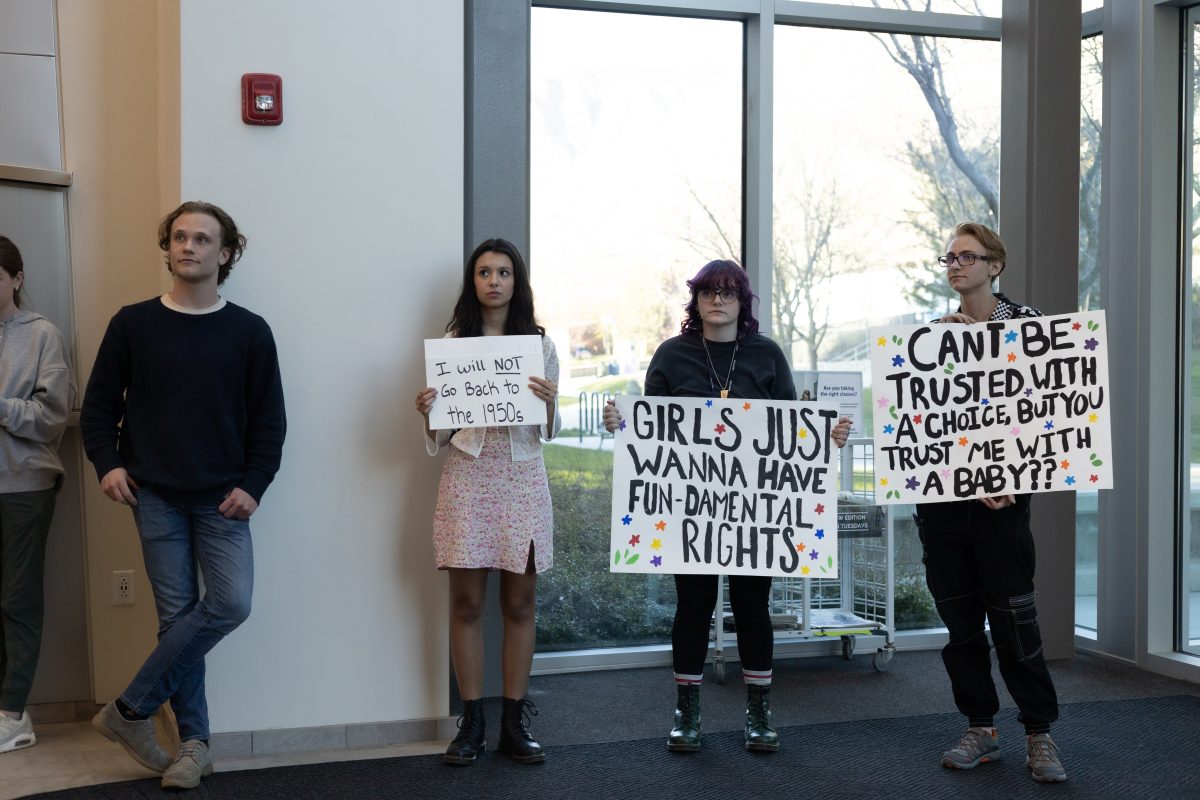
While Utah’s air quality meets the federal standards 95 percent of days of the year, the other 5 percent of days is a cause of concern for many Wasatch Front residents.
“I, as a person who enjoys being outside and in the mountains frequently, think (air quality) is a large issue,” said Derek Davey, an applied environmental geoscience major. “I believe Utah has some of the worst air quality in the nation.”
Air is the big issue the Engaged Learning Series at Weber State University will discuss throughout the year. “Let’s Clear the Air,” sponsored in part by the Olene S. Walker Institute of Politics and Public Service, presented Lt. Gov. Greg Bell and Alan Matheson, senior environmental adviser to the governor.
Thursday’s discussion and lecture was one of at least 19 events the On Air series will present this year.
Bell, who has played an active role in implementing Utah’s environmental policies, is a WSU alumnus, along with his parents and all his siblings. Bell praised WSU President Charles Wight and the university. He started off his lecture by saying the education he received at WSU was great because his professors knew his name.
The lieutenant governor, who officially resigned in September, said the biggest danger in public life is the simple mind that comes to complex issues with a simple solution. Bell said the public must look at facts and science when it comes to air quality, as opposed to personal feelings.
“I’m not here to take opinion polls, and I’m not here to deal with your feelings,” he said. “I’m here to deal with reality.”
UCAIR.org is a statewide clean air partnership that was created to help Utahns improve the overall air quality in the state.
Matheson, who also sits on the UCAIR Board of Directors, said that contrary to popular belief, over the past 10-20 years the air quality in Utah has actually improved. He highlighted the three categories of pollution causes in Utah as being automobiles, area pollution from homes and small businesses, and big industries like refineries and smokestacks.
According to Matheson, transportation contributes 57 percent of pollution, while 35 percent is area pollution and only 13 percent is from the big industries.
“As we get better science, get a better understanding of the health impact of these pollutants, the standards change,” Matheson said. “And they are based on the best information we have.”
He said the standards have become tighter over the years, regardless of the rising population numbers.
“Roughly from the years 1999 to 2012, the numbers of exceedances of today’s standard have declined 31 percent in Salt Lake County,” Matheson said. “So the amount of pollution in our air, even with dramatic population growth, is going down.”
According to the Clean Air Act, if an area does not meet the standards, it is required to develop a state implementation plan to bring it into compliance. Matheson said Utah’s state implementation plan came out last month.
“Some (regulations) are in place already,” he said. Although most of the strategies put in place by Gov. Gary Herbert go into effect January of 2014, if Utah doesn’t meet these requirements by 2019, the government will implement new and stricter requirements that impose pollution control and tradeoffs.
“If you’re going to bring in a source that’s going to generate 10 tons of pollution, you have to reduce 11 tons,” Matheson said. “If we don’t make it, (the Environmental Protection Agency) can take away highway funding and other sanctions.”
During the Q-and-A period of the presentation, members of the audience reiterated that health is the main issue of air pollution, and Matheson agreed. He said it’s not just about meeting standards, but about “ensuring the people we care about the most are taken care of.”




















